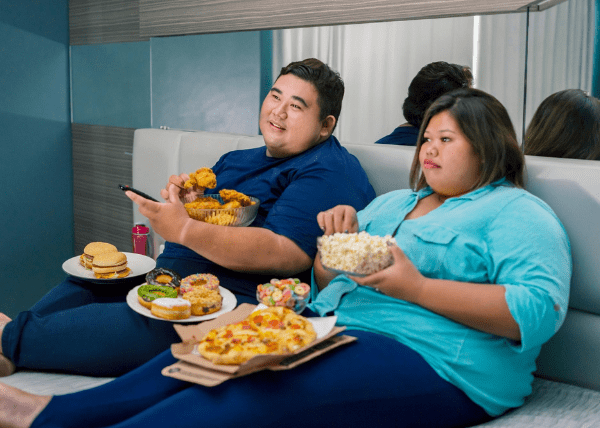You’ve probably heard of, or maybe even done, “stress eating”, which is when we seek high-fat and sugary meals when we’re anxious. Cortisol is produced by the adrenal glands when a person is stressed, and it enhances hunger.
When you grab for your ‘comfort foods,’ which are generally high in fat, sugar, or both, then you would experience a form of emotional discomfort. But, this emotional binge eating could lead to overeating, which in turn produces physical discomfort and even humiliation.

Relationship troubles, money concerns, work stress, and mental health issues such as anxiety and depression are just a few of the causes of emotional binge eating. Emotional binge eating affects both men and women, although it is more frequent in women.
The good news is that you can modify your brain to prevent emotional eating binges. Begin by distinguishing between physical and emotional hunger, as well as developing strategies for coping with bad emotions other than eating.
How to stop emotional binge eating?

Meditation
Meditating can not only help you cope with stress and worry, but it will also provide you with the ability to make better dietary choices. With practice, you may be able to stop emotional binge eating right when the need strikes.
Look to nature for inspiration.
Turn to nature when you’re worried, overwhelmed, nervous, or disturbed. Step outside to soak up some sun, wander barefoot on the grass, or read while surrounded by nature. It will not only take your focus away from the meal, but it will also assist you in relaxing.
Lean on support
Having someone to turn to when you’re experiencing bad emotions can help you teach your brain to rely on your loved ones for comfort rather than food.
Make your body move.
Exercise can assist in the maintenance of good eating habits. Moreover, regular exercise has long-term effects on the reduction of anxiety and depression.
Don’t deprive yourself
You can still indulge yourself now and again if you keep an eye on the volume.

Self checks
Stop and attempt to find out what’s causing you to want to get up and grab some cookies or chips the next time you experience the temptation. Some people use food diaries to keep track of what they ate and how much they ate in order to be more aware of their eating habits.



